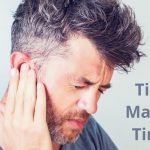Many people take their hearing for granted and do not think about hearing health until it begins to decline. Some contributing factors of hearing loss include poor diet, ear infections, and loud noise, and by the time it is diagnosed it is often irreversible.
Did you know that your hearing health can be supported by what you eat? By eating nutrient-rich foods and avoiding foods that cause inflammation and poor health, you can protect yourself against hearing loss and reverse many of its common causes at the outset.
This article will explore vitamins and minerals in certain foods that have been proven to support your hearing health. By eating a nutrient-rich diet, you will be supporting your hearing and your overall health, too!
B-9, also known as Folate
The scientific community established a link between vitamin B-9 and hearing loss with surprising results. The American Journal of Clinical Nutrition published a study from 1999 that found that elderly women suffering from hearing loss had 43 percent lower serum folate levels than their normal hearing counterparts. A study from 2003 in Acta Oto-Laryngologica showed significantly lower folate levels in patients with sensorineural hearing loss than those with normal hearing. Yet another, from Auris Nasus Larynx in 2004, found that males with age-related hearing loss had very low levels of vitamin B-9.
To ensure you are getting enough vitamin B-9 in your diet, look to foods like spinach, asparagus, beans, broccoli, eggs, liver and nuts. You may also choose to supplement your current diet with vitamins.
B-12
More B vitamins to the rescue! Studies have found that low levels of B-12 are associated with sensorineural hearing loss and age-related hearing loss. It is believed that both B-9 and B-12 deficiencies can cause homocysteine levels to rise and, in turn, restrict blood flow to the cochlea. The cochlea is part of the inner ear that converts sound into electrical signals that travel to the brain.
Vitamin B-12 is present in foods like meat, eggs, fish, milk, and other dairy products. Supplements are recommended for vegetarians.
Omega-3 Fatty Acids
One of the most important nutritional allies for hearing health is omega-3 fatty acid. A study from 2010 published in the American Journal of Clinical Nutrition found that participants who had at least two servings per week of cold-water fish high in omega-3s, had a 42 percent lower risk of developing age-related hearing loss than those who had less than one serving per week.
In addition to wild-caught salmon, other foods high in omega-3 fatty acids include sardines, pasteurized eggs walnuts, flaxseed, and grass-fed beef and lamb.
Vitamin A, Vitamin E
A recent study set out to examine the correlation between dietary and supplement intakes of antioxidants, and the prevalence of hearing loss. Of all of the antioxidants measured over a five-year period, vitamins A and E were victors in regard to hearing health. Participants with the highest intake of dietary vitamin A had an astounding 47 percent reduced risk of hearing loss, while those who ate foods rich in vitamin E showed an honorable 14 percent lowered risk of hearing loss.
Some foods high in vitamin E include almonds, spinach, sweet potato, avocado, sunflower seeds, butternut squash and olive oil. Foods rich in vitamin A include beef, liver, carrots, sweet potato, kale, spinach, broccoli, eggs and grass-fed butter.
Vitamin C to the Rescue
Vitamin C, a water-soluble antioxidant, works with other cellular antioxidants and glutathione to collect free radicals associated with noise-induced hearing loss. Studies with guinea pigs show that higher dietary intake of vitamin C protects the auditory brainstem from damage when excessive noise is present. Studies in humans have found that vitamin C can improve symptoms of sudden sensorineural hearing loss by reducing the level of reactive oxygen metabolites produced in the inner ear.
Thankfully, vitamin C is easy to add to your diet. Some foods high in vitamin C include citrus fruits, strawberries, bell peppers, broccoli, Brussels sprouts and dark leafy greens. If you are afraid you may not be getting enough vitamin C from your diet, find a good vitamin C supplement and enjoy the benefits of healthier living—and hearing!
Fit Hearing
In addition to sticking to a nutritious diet to maintain your hearing health, it’s also important to get annual hearing tests and seek treatment for hearing loss if it appears. If you’ve noticed changes in your hearing, consider scheduling a hearing test with an audiologist or hearing health specialist in your area, and if you need a new device, browse our selection of affordable hearing aids.






